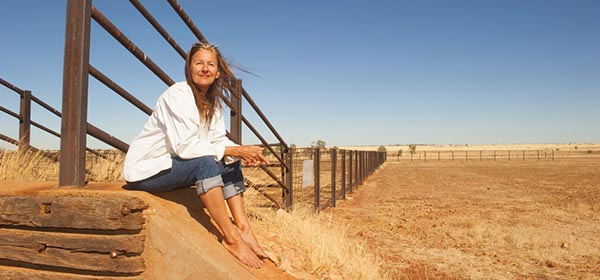Marie is a frustrated cowgirl at heart and wants to stay on a working cattle station or farm. So, in today’s Travel SOS, Lee Mylne points her in the right direction.
Q. Marie
I am a frustrated cowgirl at heart and would love to go and spend some time on a ranch. I know it can be done if you go to the US or Canada, but is there an option closer to home? Is there a working ranch that offers stays either in Australia or New Zealand?
A. ‘Ranching’ is such an American term, so I’m guessing you’re after what in Australia and New Zealand is more often called a ‘farmstay’. I’ve had some wonderful farmstay experiences, Marie, and I hope you’ll find somewhere that you can unleash your inner cowgirl, too.
Many rural families have opened up their properties to guests as a way of diversifying their income – and the kind of experiences they offer vary depending on the type of property it is.

However, if you are looking for somewhere that you can really get your hands dirty, rounding up cattle or helping with other ‘hands-on’ farm work, you might have to do quite a bit of research to find what you’re after.
Farmstays are very popular with families and international travellers, many of whom are happy to be in a farm environment, feeding the chooks, collecting their eggs and watching the farmer go about the daily chores. That said, farm activities will depend on your choice of farmstay and most are seasonal. Check with your host when you book.
Safety is paramount on farms and insurance premiums in recent years have become prohibitively high for many farmstay hosts, making it likely that you’ll be watching the action, rather than taking part in it.
But you might be lucky enough to find one that allows a more immersive experience – and the best way is to contact one of the farm-stay associations and ask the question. A few years ago, I was able to take part in mustering on horseback at a Queensland cattle station farm-stay (sadly, no longer operating) but it took quite some effort to track down such a hands-on operation.
Another option is to go to a jackaroo or jillaroo ‘school’, where you can learn to ride, muster, milk cows, catch sheep, fix yards, crack a whip and much more. One long-running school is Leconfield, a working sheep and cattle station near Tamworth in New South Wales, which runs 11-day jackaroo and jillaroo courses for all ages (16 and over).
Farmstay and ‘station stay’ accommodation is offered in a wide range of styles including in-house bed and breakfast, self-contained homesteads and cottages and even in refurbished shearers’ quarters. Another bonus is that dogs may be welcome, too.
Apart from farm animals, many Australian country properties have an abundance of native wildlife such as kangaroos, wallabies, emus, koalas, lizards, frogs and birdlife.
New Zealand also has plenty of farmstay options, covering everything from sheep or dairy farms to those specialising in deer or goat farming, cropping, orchards, and vineyards. Farms in New Zealand tend to be smaller than Australia’s vast cattle station properties, ranging from 20 acres to about 1000 acres, but the same kind of warm rural hospitality is offered.
For more information about farmstay holidays around Australia, contact Bed & Breakfast and Farmstay Australia, whose website has more links to state farmstay organisations.
More information:
www.ruralholidays.co.nz
www.leconfieldjackaroo.com
Related articles:
Travel SOS: is a health farm the answer?
Travel SOS: flying with elderly parents
Travel SOS: confused about airport transit

Lee Mylne has managed to combine her two passions – travelling and writing – into a long and successful career as a travel journalist. Her work is published in newspapers, magazines, websites and travel apps in Australia and around the world.
Do you have a travel question for Lee? If so, email your Travel SOS to [email protected]

